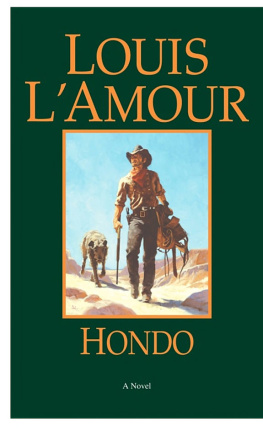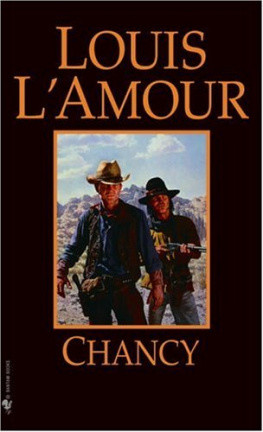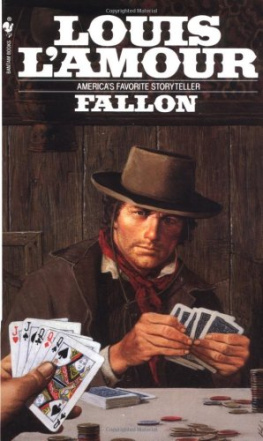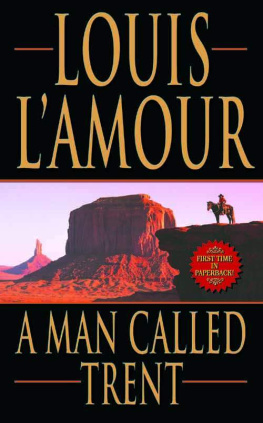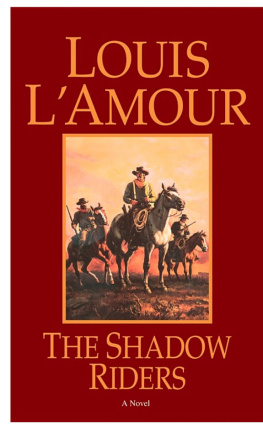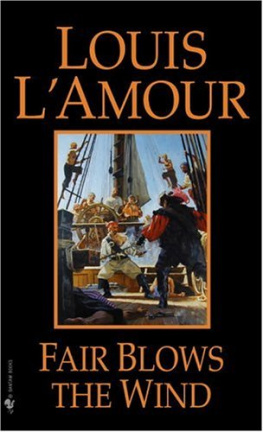Louis LAmour - Over on the Dry Side
Here you can read online Louis LAmour - Over on the Dry Side full text of the book (entire story) in english for free. Download pdf and epub, get meaning, cover and reviews about this ebook. year: 2004, publisher: Bantam, genre: Detective and thriller. Description of the work, (preface) as well as reviews are available. Best literature library LitArk.com created for fans of good reading and offers a wide selection of genres:
Romance novel
Science fiction
Adventure
Detective
Science
History
Home and family
Prose
Art
Politics
Computer
Non-fiction
Religion
Business
Children
Humor
Choose a favorite category and find really read worthwhile books. Enjoy immersion in the world of imagination, feel the emotions of the characters or learn something new for yourself, make an fascinating discovery.

- Book:Over on the Dry Side
- Author:
- Publisher:Bantam
- Genre:
- Year:2004
- Rating:3 / 5
- Favourites:Add to favourites
- Your mark:
- 60
- 1
- 2
- 3
- 4
- 5
Over on the Dry Side: summary, description and annotation
We offer to read an annotation, description, summary or preface (depends on what the author of the book "Over on the Dry Side" wrote himself). If you haven't found the necessary information about the book — write in the comments, we will try to find it.
Over on the Dry Side — read online for free the complete book (whole text) full work
Below is the text of the book, divided by pages. System saving the place of the last page read, allows you to conveniently read the book "Over on the Dry Side" online for free, without having to search again every time where you left off. Put a bookmark, and you can go to the page where you finished reading at any time.
Font size:
Interval:
Bookmark:
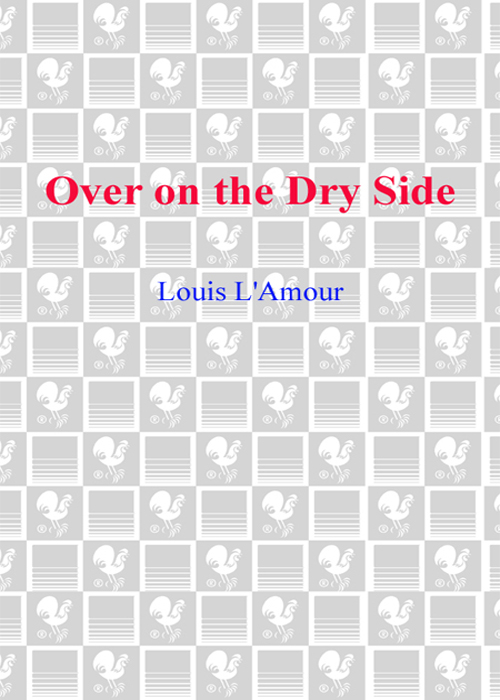
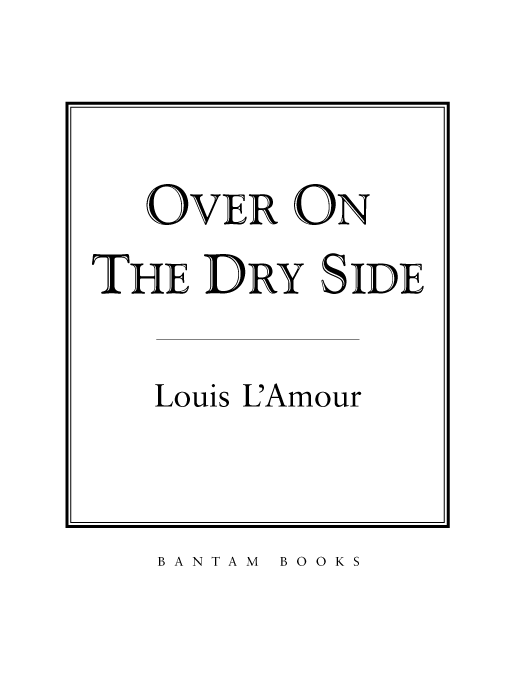
Contents
T EXAS F AST D RAW
N OBODY SAW HIM move, but we all heard the gun. And we seen that man with the rope drop it like something burned him, and something had.
The rope lay on the ground and that man was shy two fingers.
Then Owen Chantry come one foot down the steps and then the other. He stood there, his polished boots a-shinin and that gun in his hand.
The name, he said, is Owen Chantry. My brother lived on this place. He was killed. These folks are living here now and theyre going to stay.
I, too, am going to stay.
Youre slick with that gun, the brawny man said, but well be back.
Why come back? Chantry said pleasantly. Youre here now.
To Don Demarest,
companion
of the
High Country
Chapter 1
A LL THAT SPRING, I was scared. Why Pa ever took a notion to stop on that old Chantry place I never did know. Maybe it was because he was just tired and wishful of stopping someplaceanyplace.
Thered been a dead man on the steps by the door when we drove up. Hed been a long time dead, and nobody around to bury him, and I was scared.
The cabin was strong. It was built mighty solid like whoever had shaped it up and put it together had planned to stay. That was before the Indians come.
There was nobody inside and the place was all tore upof course. It had been vacant for weeks, probly. Maybe even months. That man had been dead a long time.
There wasnt much left but torn skin, dried out like old leather, and bones. His clothes was some tore up and all bloody.
Pa, he stood there looking down at him a long time. Dont seem logical, he said, at last.
Whats that, Pa?
Indians most usually take a bodys clothes. They aint taken nothin from him.
His pockets is inside out.
I was seein that, boy. It do make a body think. He turned. Boy, you run out to the wagon an git my shovel. We got a buryin to see to.
He stepped around the body and pushed wide the cabin door. That door had been half-open, and Pa looked in like he feared what he might see, but like I said, there wasnt nothin to fear.
When I come in later I saw just what he saw. A bed with two sides nailed to the outside wall, a table, two chairsall mighty well made by a man with lovin hands for wood.
Pa always said you could tell a man who loved wood by the way things were fitted and dressed, nothing halfway, but smooth and nicely done. Pa couldnt do that sort of work himself, but he had admiration for it, and it made me feel like working at it until I was good. If fine work impressed Pa so much there must be something to it.
I never had no craft, boy. I worked hard all my life but never had no craft. Just a few slights I picked up handling heavy things and the like. I do admire a man who does fine work. It is a pleasure to look upon.
We taken that dead man out to the hill back of the house and we dug us a grave. When wed dug it down, we laid that body in a blanket, covered it around him sweet an neat, and then we lowered him easy into the ground and Pa said a few words from the Book.
I never did know how Pa come to so much knowing of the Book, because I never did see him reading much in it.
We filled in the grave an Pa said, Come tomorrow well make him a marker.
Howll you know what to say? We aint sure who he is.
No, we aint. But they do call this the Chantry place, so I reckon his name must be that. Pa stopped there, leaning on his shovel, like.
Whatll we do now, Pa? Its late to be startin on.
This heres it, son. This place here. We aint goin no further. You know, son, I aint been much of a success in my time. Fire burned me out back to home, and we lost everything. In Missouri the grasshoppers et it all up, and in Kansas it was hail. But you know, I never was much hand at pickin land.
Your grandpap, now he knowed land. He could look at what growed there, and he knew. He could ride over land at a gallop and tell you which was best, but me, I was a all-fired smart youngster and no old man was going to tell me anything. I just knowed it all already. So I never learned.
Son, I got to admit it. Ever piece of land I picked was poor. Sure, we lost out to grasshoppers, hail, and the like, but those places never would have made it no way.
Now this heresome other man picked this. I heard talk of Chantrys and they were knowing folk. The man who built this house, he was a knowing man. He had a craft. So I reckon maybe he picked himself a right good piece of land.
So this here is it. We just aint a-goin no farther.
We cleaned out the cabin. We mopped an we dusted like a couple of women, but she was spic an span when we finished.
The shed and the stable were solid-built, and there were good tools in the shed, leaning just like that dead man must have left them.
Right close to the house was a spring, not moren thirty feet away. Good cold water, too. Never tasted no better.
There was a fieldstone wall around that spring, maybe eight, ten foot back from it, so a body could get water and go back to the cabin, leaving himself open to fire only in front. Even that was partly protected by a swell of the ground.
Cabin had a good field all around, and a corral joined the house to the barn. The horses had been run off, and whatever other stock he might have had, but we pulled our wagon close and we unloaded.
Not that I liked it much. Fact was, I didnt like it at all. Ever time we stepped out of that cabin we stepped over where that dead man had lain. I never liked that.
Pa said, Pay it no mind, son. That man would admire to see folks usin what he built. No man with a craft builds to throw away. He builds to use, and to last, and it would be a shameful thing to leave it die here, all alone.
Aint no neighbors, Pa.
We dont need neighbors right now. We need time an hard work. If this here lands rich as I think, neighbors will come. Only when they do theyll find a fair piece of it staked out an marked for we uns.
Maybe those Indians will come back.
He just looked at me. Boy, your pa aint as smart as some, but Im smart enough to know that Indians take the clothes off a dead man because they need em.
His clothes wasnt taken, I said, wanting to argue with him.
You bet. His clothes wasnt taken, but somethin else was. You notice his pockets, boy?
They were inside out.
They surely were. Now, boy, somebody wanted what was in that mans pockets. Money and the like. Indians this part of the country dont set much store by money. They want goods. They want things. Aint no money in them wigwams.
You mean, it wasnt Indians?
Seen no moccasin tracks, boy. But I seen boot tracks a-plenty. Those who killed that man werent Indians. They was white men.
We were eatin supper when Pa said that, and it give me a chill. If it wasnt no Indian, then we were in trouble, cause a man can tell an Indian. He can spot him right off. But a bad white man? How you goin to tell until hes bad?
I said as much. Pa, he just looked at me and said, Boy, you see strangers around, you come tell me, you hear? But you see em first, an when you do you get clean out of sight.
Wasnt much time for thinkin about things, because we worked. Seemed like Pa felt he owed something to the dead man, because he worked a sight harder than I ever seen him before. It was work from can see to caint see, for Pa an me.
We measured out four sections of landfour square miles of it, field, forest, meadow, and stream.
Next pageFont size:
Interval:
Bookmark:
Similar books «Over on the Dry Side»
Look at similar books to Over on the Dry Side. We have selected literature similar in name and meaning in the hope of providing readers with more options to find new, interesting, not yet read works.
Discussion, reviews of the book Over on the Dry Side and just readers' own opinions. Leave your comments, write what you think about the work, its meaning or the main characters. Specify what exactly you liked and what you didn't like, and why you think so.

